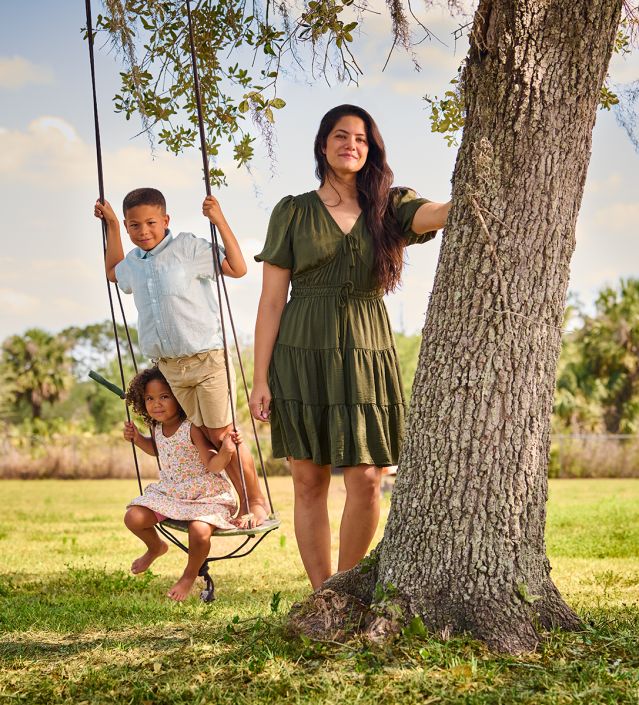Domestic Violence
The Complete Guide to Abuse Survivors’ Denial
Many survivors sense something is wrong long before they can name it. One powerful force that keeps abuse survivors in denial is the fear of being seen as different, dramatic, or disloyal. This fear silences people, delays help-seeking, and can quietly extend trauma for years.
Modern research shows that our brains are wired to protect belonging, even at the cost of truth. Understanding this mechanism is a crucial step toward breaking denial and beginning real healing.
Why Fear of Being Different Matters
The core question: Why do so many people minimize or deny abuse that clearly harms them?
In many cases, the answer is simple but profound: acknowledging abuse can mean accepting, "My family/partner is not safe," and "I am not like others who feel secure at home." That realization can feel more threatening than the pain itself.
In abuse survivors, denial is often a survival strategy, not a character flaw.
Common fears that keep survivors stuck include:
- "If I admit what happened, people will see me as broken."
- "I’ll be blamed for ‘ruining’ the family image."
- "If I speak up, I might lose everyone I depend on."
These fears are especially strong for survivors of emotional, psychological, or spiritual abuse, where there are no visible bruises—only invisible fractures in trust and safety.
The Science of Abuse Survivors’ Denial
Abuse survivors denial is deeply rooted in how the brain processes threat, connection, and identity.
When harm comes from caregivers, partners, or community leaders, the nervous system faces a conflict: "I need this person" versus "This person is unsafe." To reduce unbearable stress, the mind may downplay or rewrite events.
Key scientific insights:
- The brain prioritizes attachment and belonging over accuracy.
- Chronic invalidation can train survivors to distrust their own memory and perceptions.
- Denial can show up as humor, perfectionism, people-pleasing, or defending abusers.
This is not weakness; it is an adaptation.
Latest Research on Belonging, Trauma, and Silence
Recent studies give language to what many survivors feel but cannot explain.
- A 2023 study on social connection found that exclusion activates the same neural circuits as physical pain (Delgado et al., 2023).
- Harvard researchers (2024) highlight that fear of social loss significantly delays disclosure of family abuse, especially among young adults and marginalized communities.
- Stanford researchers report that survivors who grow up with "no one will believe you" messaging show higher rates of self-doubt and delayed help-seeking well into adulthood.
- Longitudinal trauma studies show that minimizing or denying abuse in early adulthood is common, especially when the abuser remains embedded in the survivor’s support network.
Together, these findings confirm that denial is often the brain’s attempt to prevent social death.
Evidence-Based Mechanisms That Fuel Denial
Abuse survivors denial is not random. It follows recognizable, research-backed patterns.
Fear of being different
- Survivors compare their lives to friends who describe loving homes or supportive partners.
- Feeling "off" or "other" can be so painful that pretending becomes safer than acknowledging the truth.
Internalized loyalty and cultural rules
- Messages like "respect your elders", "forgive and forget", or "family is everything" can be weaponized.
- Survivors may feel that naming abuse equals betrayal, sin, or ingratitude.
Gaslighting and confusion
- Repeated denial by abusers ("That never happened," "You’re too sensitive") reshapes memory.
- Over time, many survivors believe, "Maybe I am overreacting," even when evidence of harm is clear.
Fear of revictimization
- Survivors anticipate being doubted, blamed, or pressured to reconcile.
- This fear is often confirmed when they test the waters and are told, "It wasn’t that bad" or "You’re tearing this family apart."
Survival through splitting
- The mind may split experiences: "They hurt me" and "They love me" exist side-by-side.
- Highlighting only the good moments helps preserve a sense of safety—at a cost.
People Also Ask: Is Denial Normal for Abuse Survivors?
Yes. Denial is a common, protective response.
In about 40–50 words: Denial allows survivors to psychologically survive unsafe environments by minimizing danger and preserving bonds with key people. It becomes harmful when it prevents them from seeking support, recognizing patterns, or leaving abusive dynamics once safer options exist.
People Also Ask: Why Are Survivors Afraid to Speak Up?
Survivors often fear:
- Not being believed.
- Being blamed, shamed, or labeled "dramatic."
- Losing housing, financial support, or their entire family system.
These risks are real, which is why any step out of denial must be strategic and supported.
Research-Backed Strategies to Break Through Denial
Moving beyond abuse survivors denial must be done gently, not by forcing memories, but by increasing safety, context, and self-trust.
Evidence-informed strategies include:
Name patterns, not just incidents
- Instead of debating, "Was that abuse?", ask, "Is this pattern consistently degrading, controlling, or unsafe?"
- Research shows that identifying patterns improves clarity and reduces self-blame.
Use external reality checks
- Trauma-informed therapy, support groups, or helplines can mirror back what is healthy vs. harmful.
- This counters years of gaslighting and isolation.
Track emotional and physical responses
- Notice your body: stomach drops, tension, dread before seeing a certain person.
- These cues are data. Studies link somatic awareness with improved trauma recovery.
Practice compassionate self-inquiry
-
Ask yourself:
- "If a friend told me this story, would I call it love or control?"
- "What would I say to a child living what I lived?"
- This bypasses defensive loyalty and engages your protective wisdom.
-
Ask yourself:
Build safe micro-connections
- Even one trusted person who responds with belief and care can reduce denial.
- Social safety calms the nervous system, making truth more tolerable.
Meta-Analysis Insights: What Works for Survivors
Findings from meta-analyses on trauma and interpersonal violence consistently show several effective elements:
- Trauma-focused therapies reduce symptoms when survivors feel believed and not pressured to reconcile prematurely.
- Interventions that validate emotional abuse and coercive control—not only physical harm—support more accurate self-assessment.
- Group programs with shared experiences help normalize reactions and reduce shame about "being different."
- Skills-based approaches (grounding, emotional regulation, boundary-setting) help survivors act on insight safely.
Across studies, one pattern stands out: Survivors heal faster when their experiences are named clearly, their fears of isolation are respected, and their choices are not rushed.
Practical Implementation: A Step-by-Step Guide
These steps are designed for reflection, not pressure. Move at the pace that feels safest for you.
Notice quiet comparisons
-
When you hear others talk about their families or partners, gently ask:
- "What feelings come up for me?" (envy, grief, numbness, anger)
- "What did I have to normalize to survive?"
-
When you hear others talk about their families or partners, gently ask:
Write a non-judgmental timeline
- List key moments that felt confusing, scary, humiliating, or unsafe.
- Highlight patterns: repeated threats, silent treatments, mocking, control of money or faith.
Translate minimization into plain language
- Change "They were just strict" into "They called me names and threatened me regularly."
- Change "We had a complicated relationship" into "They alternated kindness with cruelty to keep me off balance."
Reality-check with evidence-based criteria
- Ask: Does this behavior involve ongoing control, degradation, fear, or coercion?
- If yes, it likely meets criteria for psychological or emotional abuse, even without bruises.
Create a safety and support plan
-
Identify:
- One or two emotionally safe people.
- Local or national helplines.
- A therapist specializing in trauma, domestic violence, or family systems.
- If you are currently at risk, prioritize physical and digital safety before confrontation.
-
Identify:
Allow mixed feelings
- It is normal to feel love, anger, loyalty, grief, and doubt at the same time.
- Mixed emotions do not invalidate your story; they often confirm its complexity.
Expert Recommendations and Safe Resources
Professionals working with abuse survivors highlight several guiding principles:
- Believe your body and your younger self.
- Do not wait for others to label it "bad enough" if it is harming you.
- Avoid people who pressure you to "move on" without acknowledgment.
- Seek helpers trained in trauma, not just generic counseling.
Examples of situations where recognizing denial can be life-changing:
- A high-achieving professional excuses a partner’s tracking of her location, constant texting, and money control as "concern"—until a therapist helps her map it as coercive control.
- A son raised with public praise and private ridicule finally names the pattern as emotional abuse after learning how chronic shaming impacts adult mental health.
- A woman who grew up being told, "Others have it worse," recognizes that her terror before holidays is a sign of trauma, not ingratitude.
If reflecting on these patterns brings up intense distress, intrusive memories, or thoughts of self-harm, reach out to a qualified mental health professional or crisis line in your region.
Recognizing how fear of being different has shaped your silence is not about blaming yourself; it is about reclaiming your story with clarity and care.
Abuse survivors denial once served to keep you emotionally afloat. Now, with the right support, you can begin shifting from "I’m overreacting" to "What I went through matters—and I deserve safety, respect, and healing."










